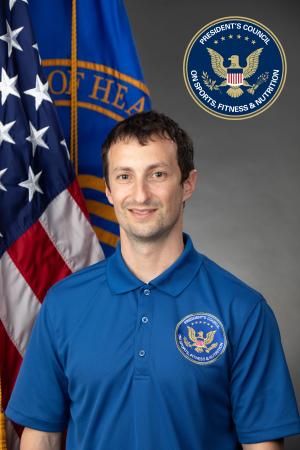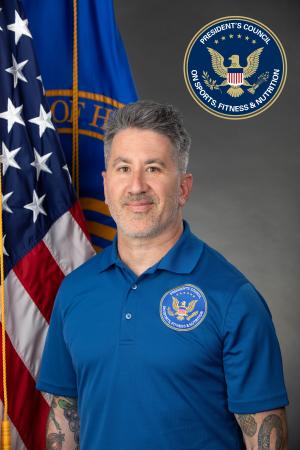In May, the Biden-Harris Administration released the U.S. National Strategy to Counter Antisemitism. Recognizing that hate and the violence it fuels are on the rise in America, the Strategy calls for everyone—regardless of personal backgrounds and beliefs—to stand united against hate, racism, bigotry, and violence.
The President’s Council on Sports, Fitness & Nutrition is proud to play a role in helping to highlight how social activities such as sports, cooking, and breaking bread together can build community solidarity and counter antisemitism and other forms of hate. This summer, the President’s Council hosted a digital campaign and invited others to join them in sharing personal stories that illustrate the power of both sports and food to combat hate.
Playing a sport is a great way to engage in physical activity, and as Council member Dr. J. Nadine Gracia stated, “Participating in sports can not only improve your health, it can also help bring communities together. Whether it’s a basketball or soccer league, a softball team, a sports camp, or other sports activity, these are meaningful opportunities to get to know your neighbors and counter stereotypes.”
Sports provide unique opportunities to transcend economic, cultural, and even linguistic barriers by uniting people of diverse backgrounds around a common purpose. Joining together to cheer as your team pulls ahead, supporting one another in loss, and reliving the excitement long after the game has ended can create powerful bonds – bonds that might not have otherwise formed.
Council member Jon Feinman experienced the creation of such bonds firsthand. “During my time with AmeriCorps, I encountered individuals on the soccer pitch who were fighting against the injustices of society’s judgment of people without consideration of a person’s context, circumstance, or shared humanity. Through these soccer games I formed new friendships outside of my traditional social circles. And the truth I saw - centered on the perspective of the individuals living through the challenges - caused me to reflect on my own biases, on the beliefs I had been taught and held, and on my own actions within a system we are all a part of. Because of this experience, with sport as the medium for connection, my own perspective evolved. I now get to live closer to my ideals, acting on my values and morals, and work with a company aimed at amplifying the voice and agency of people most impacted by mass incarceration and systemic racism.”
Like sports, sharing a meal can unite people and cultivate a sense of common belonging and understanding. There is power in a shared table. When you cook a meal for someone, it is a way to show kindness and appreciation, and perhaps, open a door to a new culture. Food fosters conversation, maybe about how we grew up or where we came from. Food stimulates our senses, our awareness, and appreciation. And, importantly, acceptance of new flavors and aromas can lead to greater acceptance of our diverse, yet common humanity.
Using food to unite community is very familiar to Council member Mike Solomonov. As a chef and entrepreneur, he has seen the power of food to counter hate and antisemitism. “When my business partner Steve Cook and I opened our Israeli restaurant in Philadelphia, we sought to use our cooking to humanize the experience of acceptance for an often hugely misunderstood place. We were going all-in for Israel based on the universal notion that the shared experience of a meal can lead to cultural progress. Now, fifteen years into the existence of the restaurant in this current era of hate and antisemitism, we must stare our renewed vulnerability of promoting acceptance square in the face and keep pushing. And if this happens by coming in for a meal at our restaurant, then we’ve done our job.”
We thank those of you who shared how the comradery of sport, the social benefit of physical activity, and the community fostered by eating together can bridge differences and create unity. We encourage everyone to connect with each other by sharing your stories, welcoming others to your team, getting out and walking with neighbors, and inviting others to your table.






